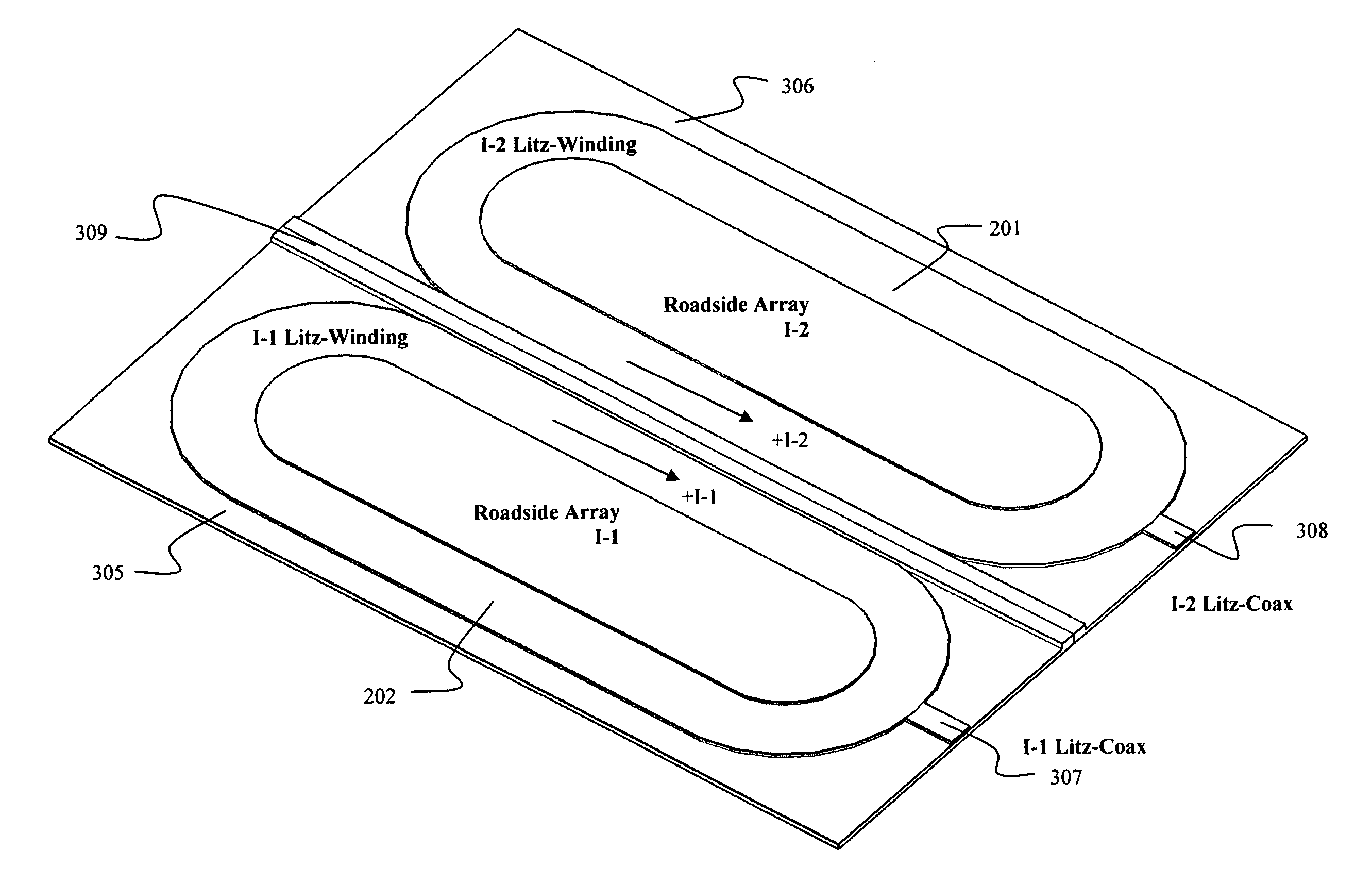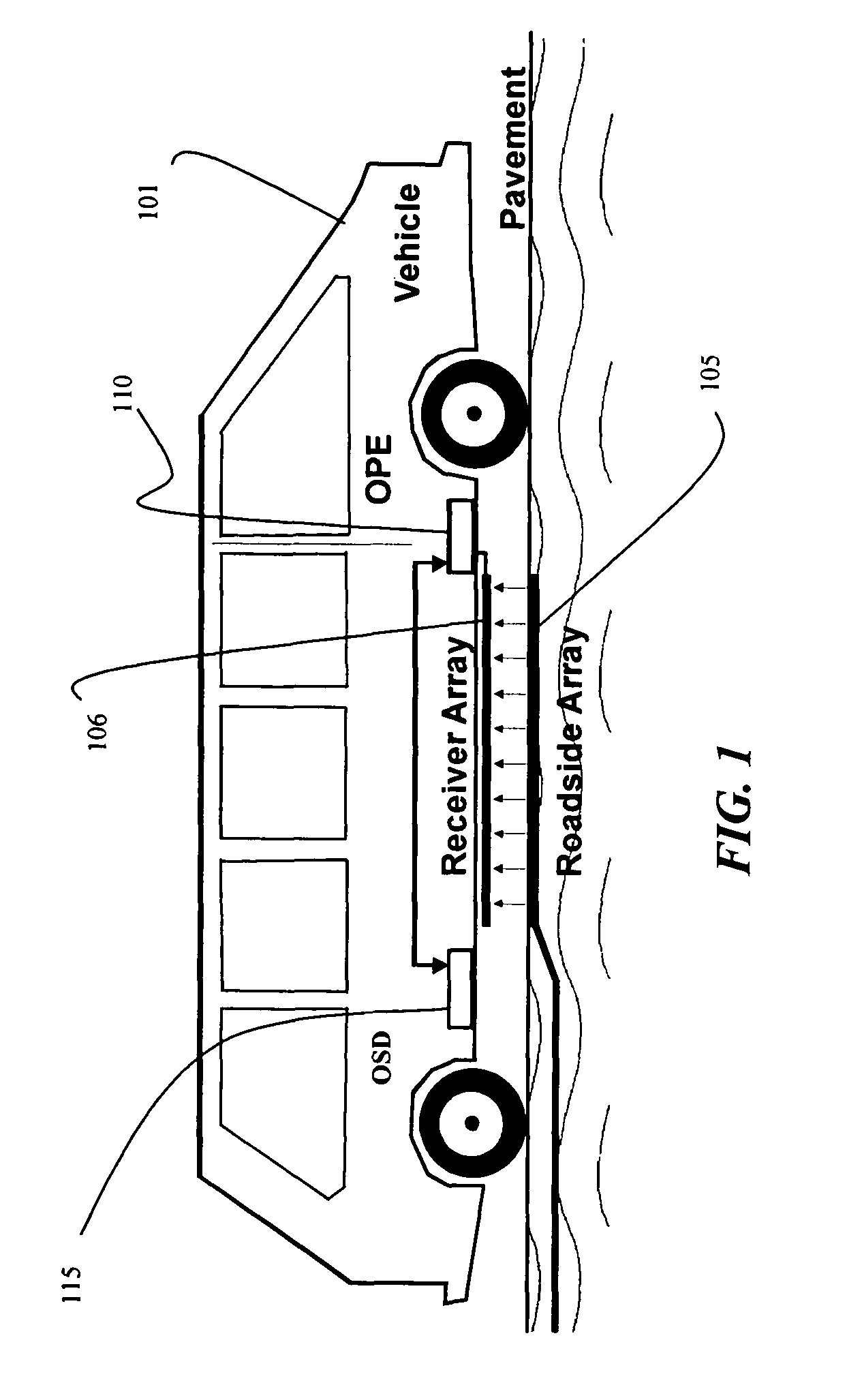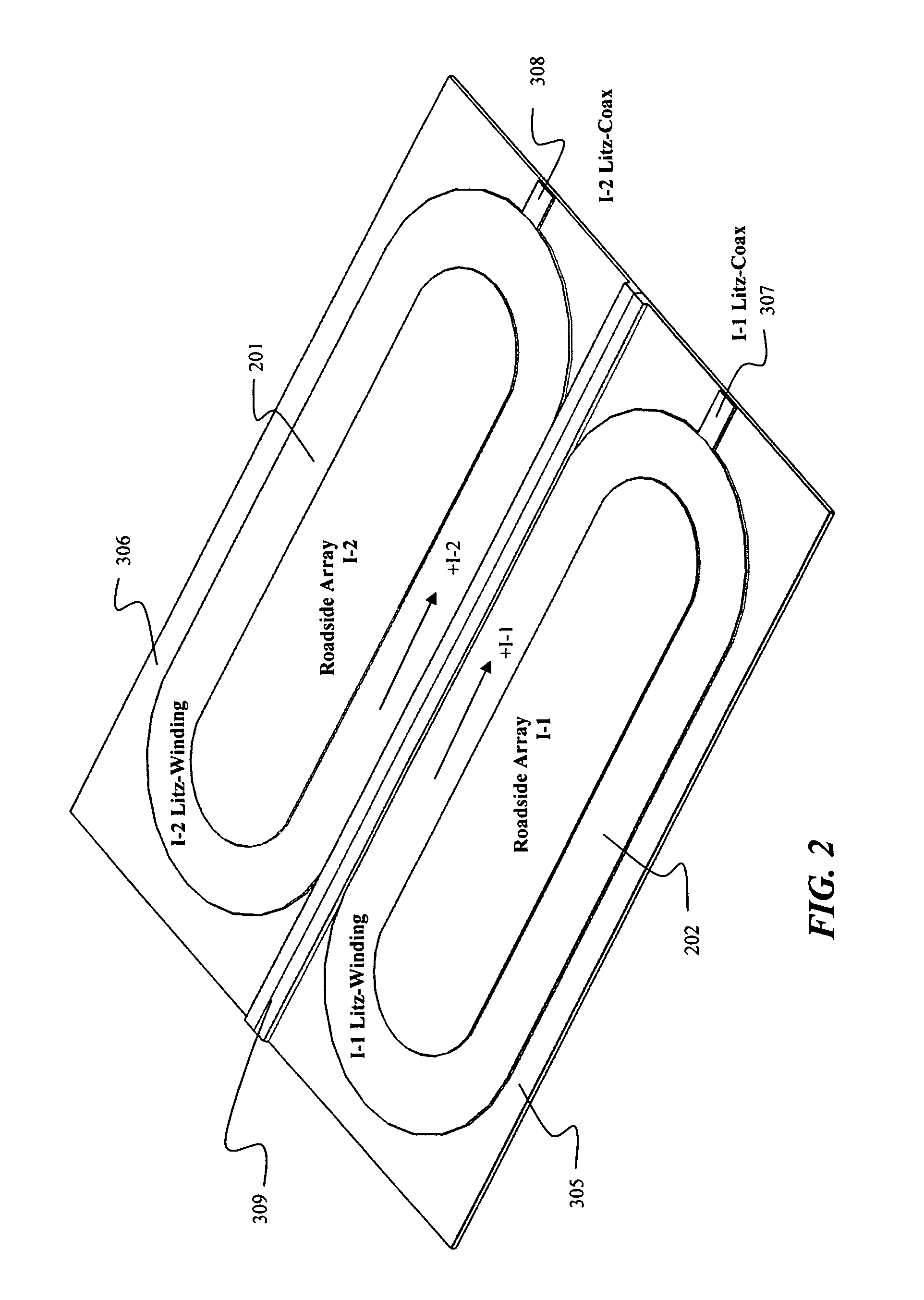High power wireless resonant energy transfer system
a wireless resonant energy and wireless technology, applied in the direction of capacitor propulsion, battery/fuel cell control arrangement, transportation and packaging, etc., can solve the problems of high energy consumption, multiple recharges, and inefficient centralized energy production. the effect of high power
- Summary
- Abstract
- Description
- Claims
- Application Information
AI Technical Summary
Benefits of technology
Problems solved by technology
Method used
Image
Examples
Embodiment Construction
[0031]FIG. 1 illustrates one embodiment of a high power wireless resonant energy transfer system. This embodiment includes an energy transmission system 105 for wirelessly transmitting energy to an energy reception system 106 when the transfer system is activated.
[0032]The energy transmission system 105 is preferably disposed beneath a roadway surface, although transmission systems disposed on the surface are contemplated as well. The energy reception system 106 is preferably disposed on the undercarriage of a vehicle 101, which uses the transferred electrical power to either charge an onboard energy storage device unit 115 or for propulsion / use directly. The storage unit 115 typically includes a set of batteries and / or capacitors which store the energy until it is needed by the vehicle for propulsion. This storage and use is typically controlled by onboard power electronics 110. Although FIG. 1 shows a particular arrangement of this embodiment, other arrangements are also possible....
PUM
| Property | Measurement | Unit |
|---|---|---|
| energy | aaaaa | aaaaa |
| power | aaaaa | aaaaa |
| power | aaaaa | aaaaa |
Abstract
Description
Claims
Application Information
 Login to View More
Login to View More - R&D
- Intellectual Property
- Life Sciences
- Materials
- Tech Scout
- Unparalleled Data Quality
- Higher Quality Content
- 60% Fewer Hallucinations
Browse by: Latest US Patents, China's latest patents, Technical Efficacy Thesaurus, Application Domain, Technology Topic, Popular Technical Reports.
© 2025 PatSnap. All rights reserved.Legal|Privacy policy|Modern Slavery Act Transparency Statement|Sitemap|About US| Contact US: help@patsnap.com



